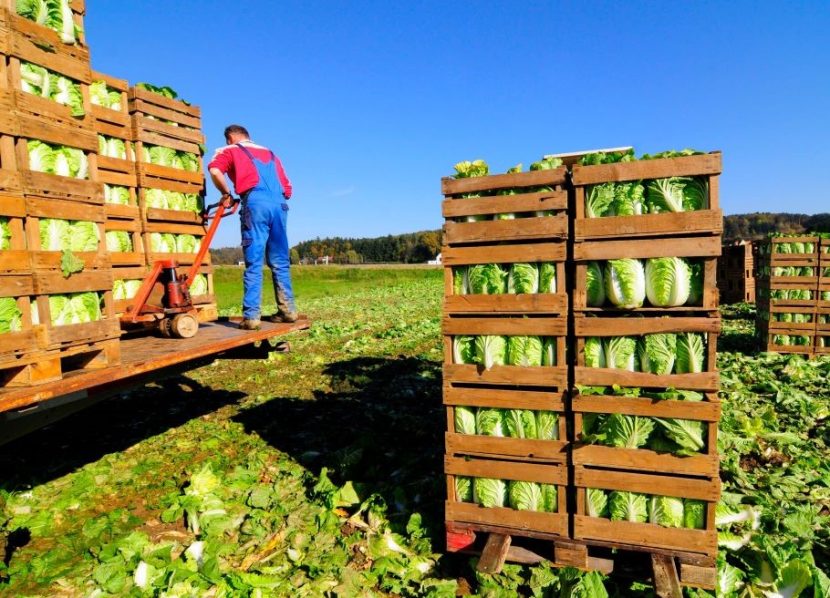Ready for FSMA Rule 204? Increased Traceability Requirements for High-Risk Foods
By Liz Sertl
The U.S. Food and Drug Administration’s (U.S. FDA’s) Food Traceability Final Rule, addressing Section 204(d) of the Food Safety Modernization Act (FSMA), requires anyone handling foods on FDA’s Food Traceability List (FTL) to implement new, additional recordkeeping procedures by January 20, 2026. Commonly known as “FSMA Rule 204,” this legislation will affect stakeholders throughout the food supply chain – from growers to processors, distributors, retailers and restaurants.
Specifically, FSMA Rule 204 applies to entities who “manufacture, pack, process, or hold” any of the foods that are listed on the FTL, anywhere in the supply chain. These foods are designated by FDA as “high risk” due to their implication in most US foodborne illness outbreaks, historically. FTL foods singled out for FSMA Rule 204’s extra traceability recordkeeping include, deli salads, cheeses, eggs, and seafood, among others, as well as a wide variety of fresh produce items such as leafy greens, melons, peppers, sprouts, tomatoes, tropical tree fruits, fresh-cut fruits and fresh-fruit vegetables. Companies that handle any of these foods are subject to the new recordkeeping requirements unless an exemption applies.
The extra data required under FSMA Rule 204 will make it easier to trace products back to the source … and ensure complete removal of all affected products from the supply chain.
FSMA Final 204 Rule Requirements
The regulation requires affected stakeholders to maintain specified information (key data elements or KDEs) for certain activities (critical tracking events or CTEs) performed along the supply chain. The records begin with a Traceability Lot Code (TLC), which must be assigned to every FTL food by its originator. The TLC is a descriptor, often alphanumeric, that uniquely identifies a traceability lot within the records of the firm that assigned it. The TLC is key to linking all of the mandated traceability records across the supply chain. Global Trade Item Numbers (GTINs) are globally unique product identifiers that can be used with a batch/lot code to create the food’s TLC.
Each stakeholder has additional recordkeeping obligations specific to the CTEs they perform in the supply chain. These might include harvesting, cooling, distribution, shipping and/or receiving events, for example. For each of the CTEs performed, the responsible company must record certain KDEs (such as harvest date, cooling time, etc.). The records are required to be kept for two years and must be provided to the U.S. FDA within 24 hours upon request. It must be submitted in a sortable electronic spreadsheet to facilitate fast, efficient investigation and recalls, as needed, to protect public health. The extra data required under FSMA Rule 204 will make it easier to trace products back to the source of contamination and ensure complete removal of all affected products from the supply chain.
Although the U.S. FDA will accept the FSMA Rule 204 data in a sortable electronic spreadsheet as the minimum requirement, the agency is encouraging increased adoption of digital technology to streamline data exchange across the supply chain, making it possible for trading partners to share it in real-time. This would require each company in the chain to acquire capabilities for importing, updating, maintaining, and forwarding that information to the next entity. Using interoperable global data standards enables the necessary interoperability for end-to-end real-time recordkeeping and traceability.
Standardizing the Approach to FSMA Rule 204
Many companies are using voluntary GS1 Standards to support FSMA Rule 204 implementation, with standardized product and location identifiers that can be readily exchanged between organizations. When the GTIN is embedded in a barcode, it can be scanned at each location and electronically tracked as the product moves through the supply chain. Global Location Numbers (GLNs) are used to uniquely identify different supply-chain entities and locations that must be referenced in the records for certain CTEs, such as a processing facility, warehouse, growing field, or individual retail store.
The common language provided by GS1 Standards enables companies across the supply chain to seamlessly communicate and share critical information – including the KDEs required under the new rule. The ability to maintain a complete, digitized record that is always up to date will help the U.S. FDA and industry to trace potential sources of contamination quickly and expediently, and to coordinate an appropriate response when necessary.
For companies wishing to upgrade their data capabilities for interoperability while gearing up to meet FSMA Rule 204 mandates, GS1 US offers guidance in its “Application of GS1 System of Standards to Support FSMA 204,” providing best practices for leveraging GS1 Standards to meet the new rule requirements.
Looking Ahead
There is a good deal of work to be done to be ready for FSMA Rule 204 enforcement beginning January 2026. It makes sense for the effort to be combined with across-the-board data management and standards adoption that will not only help fulfill the new requirements, but also move toward digital data sharing in an increasingly connected world – helping facilitate better supply chain visibility, efficiency, and transparency – as well as traceability and food safety.
About the Author
Liz Sertl is Senior Director, Supply Chain Visibility, at GS1 US, the not-for-profit information standards organization, and has more than 20 years of experience in the CPG industry. Working closely with supply chain partners, Liz facilitates collaboration best practices and guidelines that help companies improve product traceability and supply chain visibility through the adoption of GS1 Standards. She is actively working on the Sunrise 2027 initiative to help companies transition to 2D barcodes.

-
 FeaturedRisk management
The Cost of a Breach: What a Cyberattack Could Mean for Food Safety Recalls
FeaturedRisk management
The Cost of a Breach: What a Cyberattack Could Mean for Food Safety Recalls
-
 FeaturedRisk management
Securing the Food Chain: How ISO/IEC 27001 Strengthens Cybersecurity
FeaturedRisk management
Securing the Food Chain: How ISO/IEC 27001 Strengthens Cybersecurity
-
 FeaturedRisk management
Revolutionizing Food Safety Training: Breaking Out of the “Check-the-Box” Mentality
FeaturedRisk management
Revolutionizing Food Safety Training: Breaking Out of the “Check-the-Box” Mentality
-
 GFSI Standards
GFSI 2025: Building Trust, Tech-Forward Solutions, and Global Unity in Food Safety
GFSI Standards
GFSI 2025: Building Trust, Tech-Forward Solutions, and Global Unity in Food Safety
-
 FeaturedFood Safety
Integrated Pest Management: Strategies to Protect Your Brand’s Reputation
FeaturedFood Safety
Integrated Pest Management: Strategies to Protect Your Brand’s Reputation
-
 FeaturedFood Safety Culture & Training
No Open Door Policy: Challenges That Impact Pest Control in Food Processing Plants
FeaturedFood Safety Culture & Training
No Open Door Policy: Challenges That Impact Pest Control in Food Processing Plants




